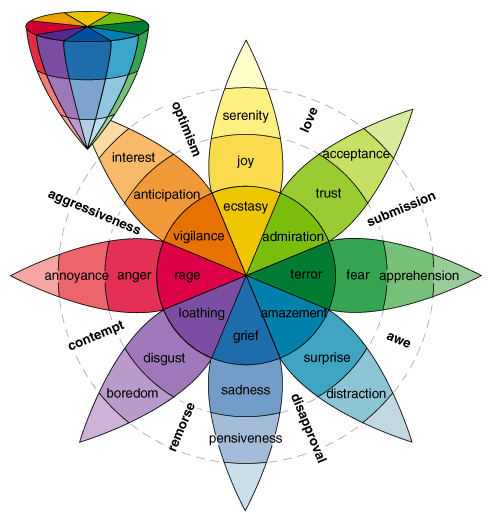It is a common belief that reason is far superior to emotion. But is it really true. To some extent, emotion does oppose reasoning in our response to many situations. Emotions have a reputation for "clouding" our reasoning, preventing us from clear thinking when they "flood" over us.
And in your life is it reason or emotion that guides?
Consider the following pair of cases:
Trolley:
There is a runaway trolley barreling down the railway tracks. Ahead,
on the tracks, there are five people. The trolley is headed straight for them.
You are standing some distance off in the train yard, next to a lever. If you
pull this lever, the trolley will switch to a different set of tracks. Unfortunately,
you notice that there is one person on the side track. You have two options:
(1) Do nothing, and the trolley kills the five people on the main track. (2) Pull
the lever, diverting the trolley onto the side track where it will kill one person.
Fat Man:
There is a runaway trolley headed toward five people again. Only,
this time, you are not in the train yard next to a lever. You are on a bridge,
watching the events from above the tracks. There is a very large man next to
you. You realize that, if you push him off the bridge and down onto the tracks
below, the trolley will hit and kill him, but his body is so large that it will stop
the trolley before it reaches the five endangered people. You have two
options: (1) Do nothing, and the trolley kills the five people. (2) Push the large
man off the bridge, so that he dies, but the five others are saved.
In both Trolley and Fat Man, one is harmed, and five are helped.
However, nearly everyone says we should kill the one in the Trolley
case, but NOT in the Fat Man case. Where's the difference?
Philippa Foot (who authored the original Trolley case) suggests that
the difference is that, in Fat Man, one intends to harm the fat man as
a means to saving the others. Meanwhile, in Trolley, one does not
intend the harm at all. Rather, one merely foresees it as an unfortunate,
unintended side-effect.
(based on: http://rintintin.colorado.edu)
There are three main different theories connected with emotions, which I would like
to explain shortly:
- James
Lange theory
- Cannon-Bard
theory
For example: I see a snake --> I am afraid --> I begin to tremble.
According to the Cannon-Bard theory of emotion, we react to a stimulus and experience the associated emotion at the same time.
- Two
factor theory
So, imagine you are alone in a dark parking lot walking toward your car. A strange man suddenly emerges from a nearby row of trees and rapidly approaches. The sequence that follows, according to the two-factor theory, would be much like this:
1. I see a strange man walking toward me.
2. My heart is racing and I am trembling.
3. My rapid heart rate and trembling are caused by fear.
4. I am frightened!The process begins with the stimulus (the strange man), which is followed by the physical arousal (rapid heartbeat and trembling). Added to this is the cognitive label (associating the physical reactions to fear), which is immediately followed by the conscious experience of the emotion (fear)
(source: http://psychology.about.com)








